|
Genres, Themes, Actors, and Directors:
- Con-Artists
- Death and Dying
- Dirk Bogarde Films
- Jack Clayton Films
- Psychological Horror
- Siblings
- Survival
Review:
British director Jack Clayton only made a handful of movies during his career, but the majority of them — including this one — show evidence of his unique talents. Most immediately impressive about Our Mother’s House is Clayton’s ability to elicit natural, nuanced performances from his cast of child actors: their interactions with each other are so authentic that we’re quickly able to ignore the fact that they don’t look much alike.
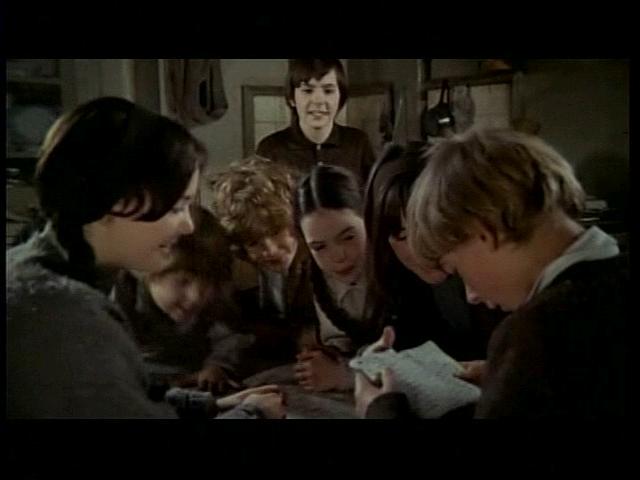
Equally impressive is Dirk Bogarde, who does wonders with a difficult role: while he’s clearly the baddie, he’s never one-dimensional, and at times — such as when he takes the children out for a boat ride on the lake — we actually even like him.
The story (based on a novel by Julian Gloag) is a compelling mixture of horror, humor, and intrigue. The film is basically split into two distinct parts: in the first half, we see the children coping in the best way they can with the death of their mother; they truly believe that she’s “still here”, and hold spooky seances to try to converse with her. The scene in which Diana (Franklin) acts as a medium and is “told” that Gerty (Nicholls) must be punished for accepting a ride on a scooter is truly scary, and reminds one immediately of Lord of the Flies.
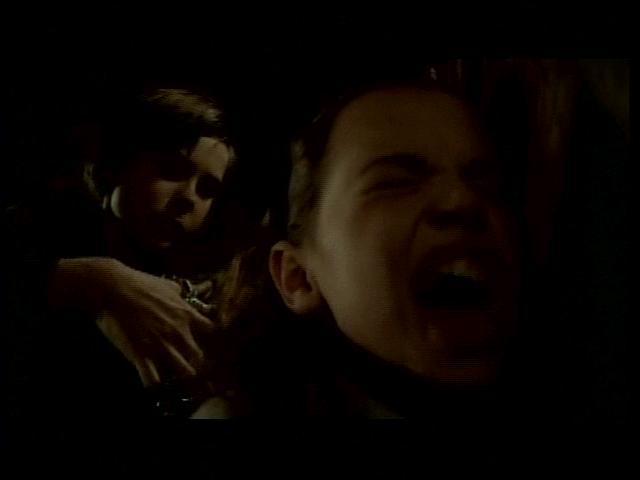
Yet Clayton also shows us the ways in which these self-sufficient children are able to have fun with their newfound freedom — such as the glee they experience when they’re successfully able to convince the bank to cash their mother’s monthly check.
The tone and direction of the film suddenly shift about midway through, once Bogarde’s character appears at the door of “mother’s house”.
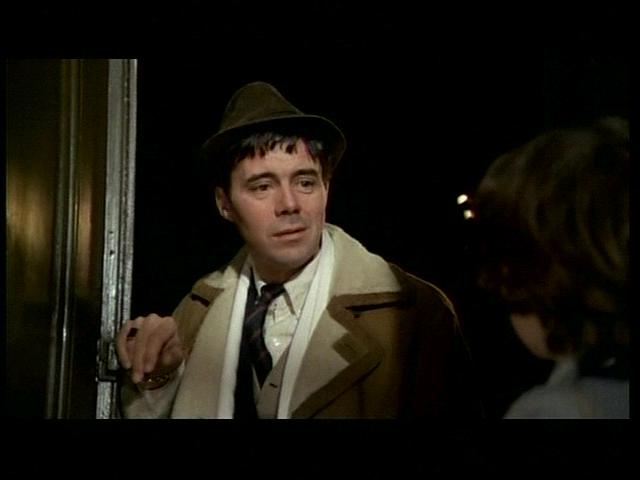
Charlie is a genuinely mysterious wildcard, and we’re kept in constant suspense about both his true identity and his ultimate motivations. Yet he also introduces the story’s one major flaw, which is that it’s impossible to believe that none of these children would recognize Charlie, given that he claims to be their mother’s husband (and, by extension, their father). If you can get beyond this gap in logic, however, you’ll undoubtedly find yourself intrigued and delighted by this unusual ensemble tale, which dares to posit children as intelligent beings who may be better off on their own than under the “guidance” of self-serving adults.
Redeeming Qualities and Moments:
- Margaret Brooks as Elsa
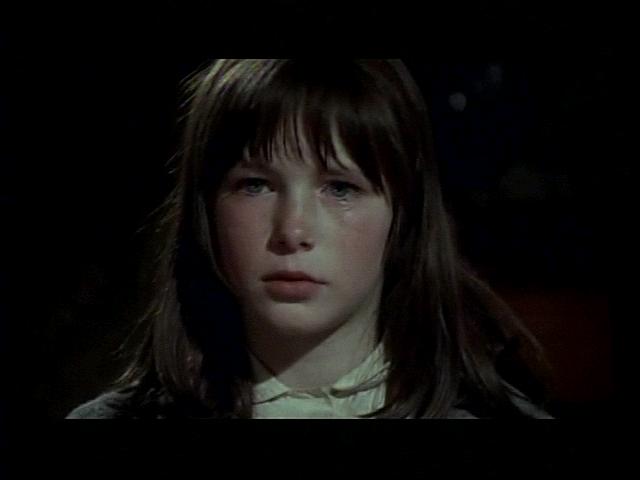
- Pamela Franklin as Diana

- Louis Sheldon Williams as Hubert
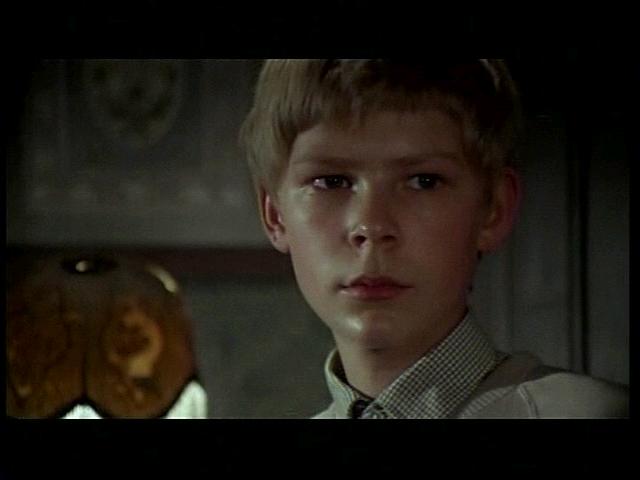
- Mark Lester as Jiminee
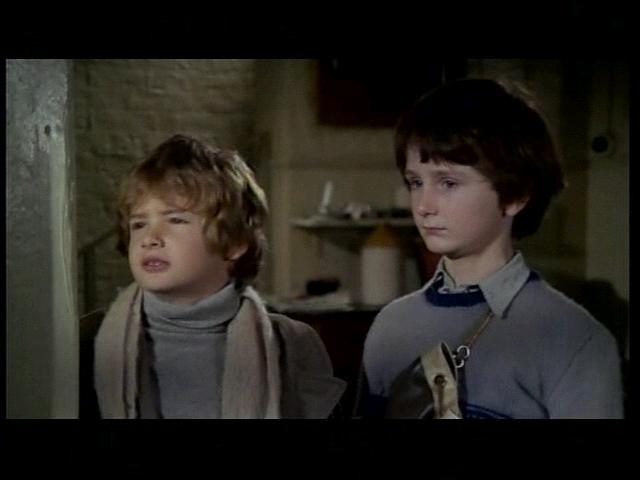
- Phoebe Nicholls as Gerty
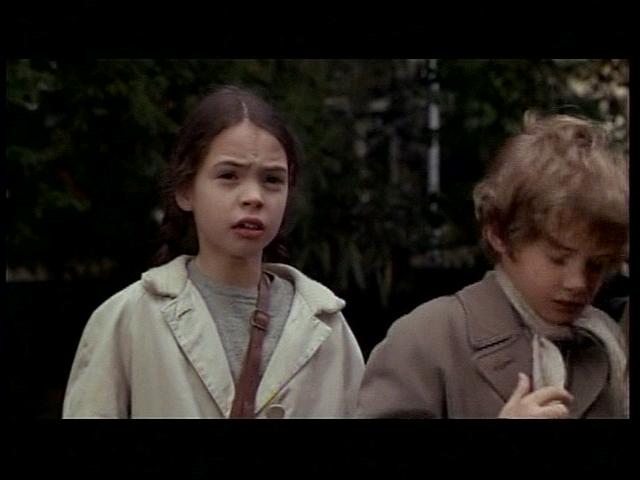
- Dirk Bogarde as Charlie
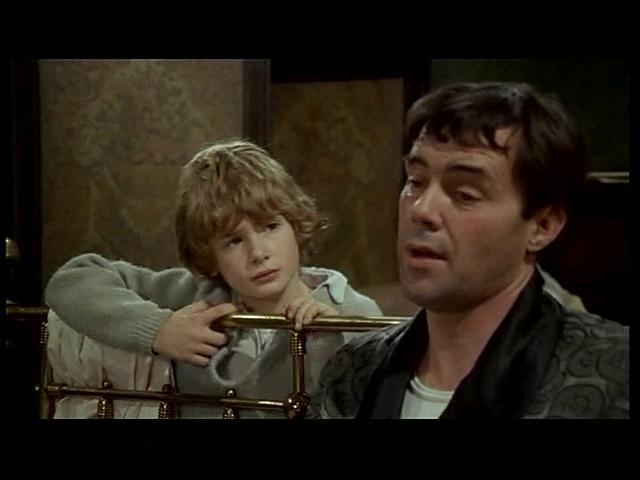
- Many wonderfully realized “small moments” — as when Willy Hooks comments that there’s “cocoa” in his cup
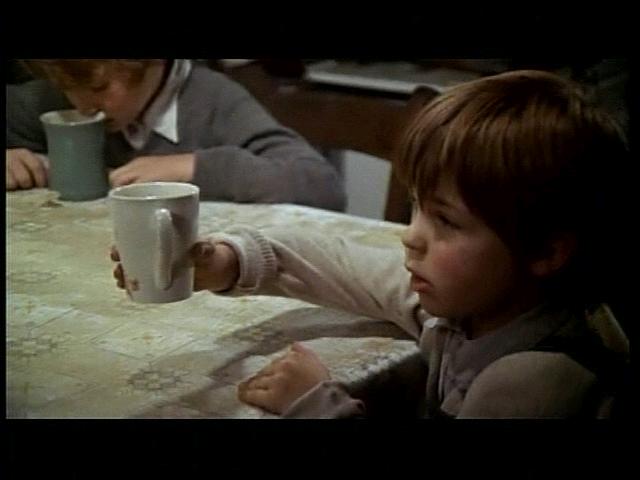
- Atmospheric cinematography

- Georges Delerue’s melancholy score
Must See?
Yes, as an unsung classic.
Categories
- Good Show
- Noteworthy Performance(s)
Links:
|
2 thoughts on “Our Mother’s House (1967)”
Very much a must!
Six years after the perfection that is ‘The Innocents’, director Clayton returned to similar gothic territory – with a decided difference.
As noted, the main reason to see ‘Our Mother’s House’ is the extraordinary ensemble performances by the children. One really believes these kids operate as one and as family. (As for the fact that they do not resemble each other – and though it is not given enough explanation – I took from the story that each child has a different father; that ‘Mother’ was somewhat schizo and torn between her wild ways and guilt, esp. about her pregnancies. As well, it seems to me that the eldest, Elsa, does recognize Charlie when he re-enters the picture; but, to me, it’s of no consequence that the others don’t – and I don’t see that as a flaw.)
In their single-mindedness, the children are reminiscent of the alien children in ‘Village of the Damned’. However, here, of course, they are fully fleshed-out; some of the most refreshingly complex youngsters ever to appear on-screen. Though they do take something of a back seat once Charlie arrives (at a chilling moment), they are not trumped by Bogarde’s performance (excellent though it is; among his best). As noted, the “small moments” are many and varied – one of my favorites being when Elsa first discovers that ‘Mother’ is dead, and reaches out to keep Hubert from getting closer to find out. Another esp. gripping scene occurs when Diana (Franklin excellent again, after ‘The Innocents’) is terrified when she no longer senses ‘Mother’ speaking through her.
Overall, a fine film, worthy of re-visits. In the world of horror, it’s unique, at times even funny, at times heart-breaking.
cf: De Palma’s ‘Carrie’, for its depiction of religious hysteria
A must see.
Jack Clayton did the impossible – direct a mostly child ensemble cast flawlessly. The young actors carried the first half of the film.
Dirk Bogarde’s appearance did shift the tone of the film, but his early scenes playing with the children did (as stated) make him sort of likable for a brief time.
The big final reveal was chilling, but no one is going to get in the way of these children remaining a family.
A non-horror horror film in many ways. So glad to have caught up with this again.